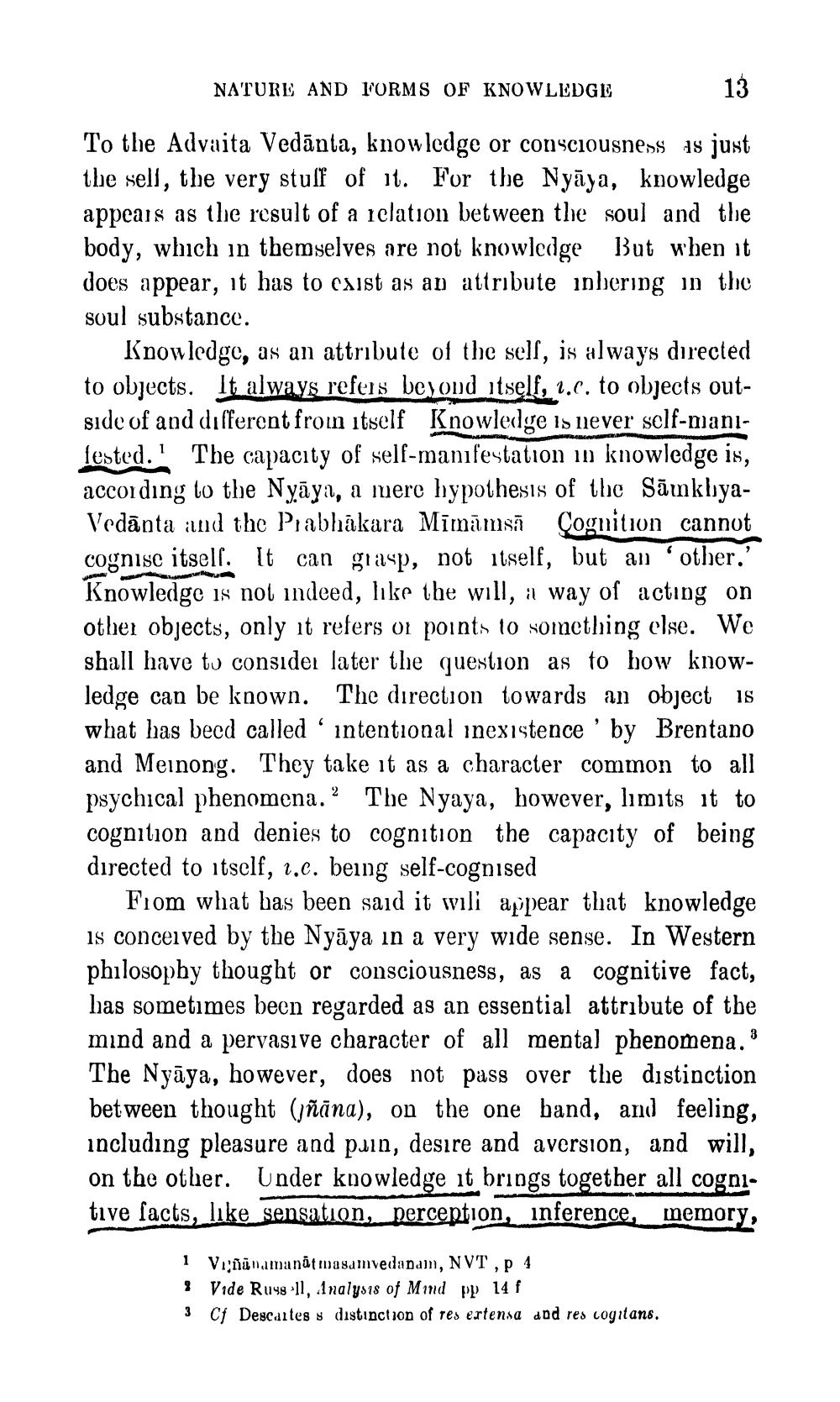________________
13
To the Advaita Vedanta, knowledge or consciousness as just the self, the very stuff of it. For the Nyaya, knowledge appears as the result of a relation between the soul and the body, which in themselves are not knowledge But when it does appear, it has to exist as an attribute inhering in the soul substance.
NATURE AND FORMS OF KNOWLEDGE
Knowledge, as an attribute of the self, is always directed to objects. It always refers beyond itself, .c. to objects outside of and different from itself Knowledge is never self-manifested. The capacity of self-manifestation in knowledge is, according to the Nyaya, a mere hypothesis of the SamkhyaVedanta and the Prabhakara Mimämsä Cognition cannot cognise itself. It can grasp, not itself, but an 'other.' Knowledge is not indeed, like the will, a way of acting on other objects, only it refers or points to something else. We shall have to consider later the question as to how knowledge can be known. The direction towards an object is what has beed called intentional inexistence' by Brentano and Meinong. They take it as a character common to all psychical phenomena. The Nyaya, however, limits it to cognition and denies to cognition the capacity of being directed to itself, 1.c. being self-cognised
2
From what has been said it will appear that knowledge is conceived by the Nyaya in a very wide sense. In Western philosophy thought or consciousness, as a cognitive fact, has sometimes been regarded as an essential attribute of the mind and a pervasive character of all mental phenomena." The Nyaya, however, does not pass over the distinction between thought (jñāna), on the one hand, and feeling, including pleasure and pain, desire and aversion, and will, on the other. Under knowledge it brings together all cognitive facts, like sensation, perception, inference, memory,
3
6
1 Vijñānamanātmasamvedanam, NVT, p 4
Vide Russell, Analysis of Mind pp 14 f
Cf Descartes s distinction of res extensa and res cogitans.




